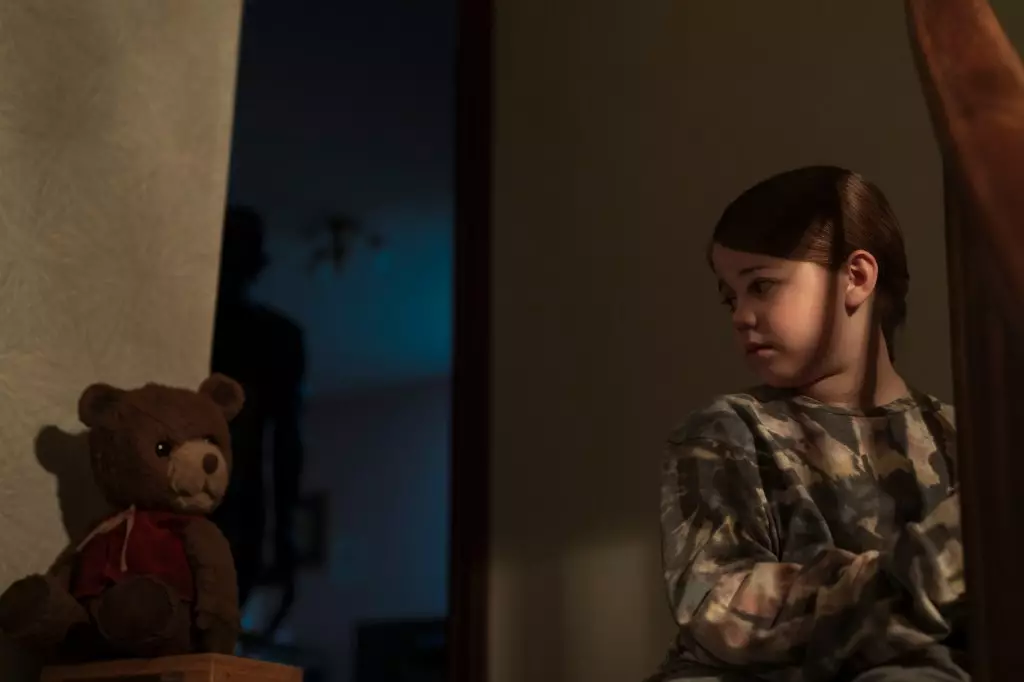Blumhouse has once again delved into the world of horror films, this time targeting a younger audience by combining childhood toys with psychological terror. With the success of PG-13 horror films like “M3gan” and “Five Nights at Freddy’s,” the production house has opted for a seemingly innocent stuffed bear named Chauncey to deliver carefully calculated chills in the film “Imaginary.” By shedding the explicitness of R-rated horror and focusing on relatable childhood themes, Blumhouse aims to capture the attention of a wider demographic.
In “Imaginary,” director Jeff Wadlow dives deep into psychological terror, portraying the genuine fears of a blended family as they encounter their worst nightmares. The central character, Chauncey, appears harmless but possesses eerie qualities that contribute to the overall suspense of the story. The film follows young Alice and her older sister Taylor as they navigate through a series of occult events triggered by their newfound companion, Chauncey. As the plot unfolds, the audience is drawn into a world where childhood playthings turn into harbingers of darkness.
Wadlow cleverly utilizes psychological horror elements to create a sense of unease and tension throughout the film. By playing on the characters’ fears and inner demons, he constructs a narrative that blurs the lines between reality and imagination. The audience is forced to confront their own perceptions of what is real and what is merely a product of the characters’ psyche, adding layers of complexity to the storyline.
The film boasts a talented cast led by DeWanda Wise, who portrays Jessica, the matriarch haunted by her past. Wise’s performance brings depth and authenticity to her character, adding emotional weight to the supernatural events unfolding around her. Pyper Braun excels in her role as Alice, infusing the character with a sense of innocence and vulnerability amidst the chaos. Taegen Burns and Sam Salary deliver strong supporting performances, further enhancing the dynamics within the family.
“Imaginary” introduces supernatural elements through the character of Gloria, the eccentric next-door neighbor who delves into the occult and spiritual realms. Her presence adds a sense of mystery and intrigue to the narrative, propelling the story forward towards a climactic revelation. The film skillfully weaves together themes of childhood imagination, dark secrets, and the blurred boundaries between reality and fantasy.
Overall, “Imaginary” offers a unique take on the horror genre by combining psychological terror with childhood nostalgia. The film’s ability to evoke fear through subtle cues and eerie visuals showcases Wadlow’s skill as a director. With a talented cast and a compelling storyline, “Imaginary” succeeds in delivering a haunting cinematic experience that will leave audiences questioning the power of imagination.

Leave a Reply